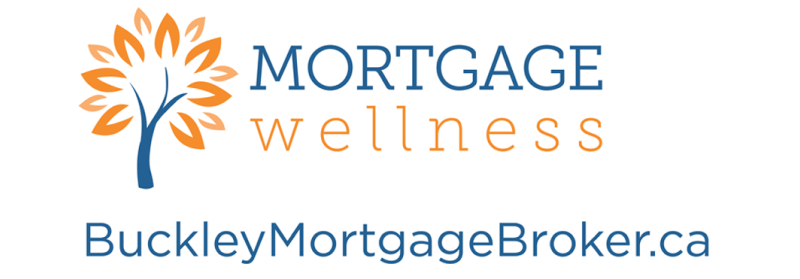So, you’ve decided it is time to purchase a new home. Whether this is your first home, last home, or somewhere in between, there are many financial issues that must be considered. Budgeting at every stage in the home-buying process will ensure financial security and peace of mind.
Planning a budget before searching for a new home will ensure you are honest with how much you can afford, rather than overestimating your financial strength to buy an unrealistic home. Finding a home that meets your wishes while fitting within your budget is the next step. After you have moved into your new home, it is important to stay on top of your budget and finances, as financial situations can change unexpectedly.
Preparing Your New Home Budget
When beginning the planning phase of your budget, it is important to determine how much you are currently spending each month on household expenses (e.g. groceries, clothing, tuition), entertainment expenses (e.g. dining out, hobbies, travel), your current loans and debts, and savings accounts. Once you have this number, deduct it from your monthly income after tax to determine how much room you have for mortgage payments. As for the mortgage payments, themselves, a great rule to go by is that you should never have your mortgage payments (principal and interest), property taxes, heating costs and 50% of condo fees (if applicable) be more than 32% of your monthly pre-tax income.
 When calculating these numbers and getting an idea for how much you can afford, do not forget the upfront costs associated with your mortgage and home purchase. These are typically forgotten about; however, they can become quite significant depending on the home and mortgage.
When calculating these numbers and getting an idea for how much you can afford, do not forget the upfront costs associated with your mortgage and home purchase. These are typically forgotten about; however, they can become quite significant depending on the home and mortgage.
Additionally, keep in mind that if your total monthly debt payments (mortgage, credit card loans, auto-loans, etc.) are going to be more than 40% of your monthly gross income, you may have trouble qualifying for a mortgage.
See to the left for the top ten most common expenses for new homeowners.
Financing Your New Home
Once you have your preliminary budget, you have to determine the price of home you can afford, which is dependent on your budget room, mortgage rates, and the mortgage amount you qualify for. This is the time to consult with your mortgage broker to see what financing options are available. It is best to borrow less than the maximum mortgage you qualify for, as it allows you some breathing room in the case of unexpected financial distress. Getting pre-approved for a mortgage will ensure you have a price range when looking at potential homes, allowing you to narrow your search down to certain home types and sizes.
 Depending on the type of home you’re looking to invest in, you may require special types of financing. When deciding between buying a new home, a previously owned home, or building your own, it is important to talk to your mortgage broker about how to finance and account for additional costs. These costs can include renovations to previously owned homes, building costs and financing for building your own home, and many more. If you are borrowing more than 80% of the purchase price of the property or appraised value, whichever is less, you may be required to purchase Mortgage Default Insurance. The premium for this insurance varies based on the amount of your down payment. Although it can be built into the mortgage , it is a cost for the purchaser (borrower).
Depending on the type of home you’re looking to invest in, you may require special types of financing. When deciding between buying a new home, a previously owned home, or building your own, it is important to talk to your mortgage broker about how to finance and account for additional costs. These costs can include renovations to previously owned homes, building costs and financing for building your own home, and many more. If you are borrowing more than 80% of the purchase price of the property or appraised value, whichever is less, you may be required to purchase Mortgage Default Insurance. The premium for this insurance varies based on the amount of your down payment. Although it can be built into the mortgage , it is a cost for the purchaser (borrower).
Incentives for First-Time Home-Buyers
The Federal government believes more people should invest in homes, and shows this by offering financial incentives to first-time home buyers when they purchase their first home. Not only are first-home buyers allowed to put down as little as 5% for their down payment (if the home is worth less than $500,000), but they also receive a “Home-buyer’s Tax Break” if they qualify. This tax break allows you to claim $5,000 on your income tax forum in the year you buy your first home, of which you will recoup 15% (lowest tax bracket percentage).
In addition, first-home buyers can use their RRSP’s to provide a portion of their mortgage and are allowed 15 years to “pay themselves back”. Essentially, the homeowner is giving themselves a second mortgage, which may be beneficial through the RRSP for tax purposes.
Maintaining Your Finances
 Just because you have purchased your home and are enjoying the new investment, doesn’t mean your budgeting stops. The key to your budgeting process has been to prepare for the long term, which means you should stay aware of your current financial situation at all times. It is crucial that you make your mortgage payments on time, as missed or overdue payments can be detrimental to your credit rating. Your budget is there to ensure you remain financially healthy, so it is important to live within your budget and leave a little extra for emergencies. Even with no emergencies, you will need additional funds for the costs of operating a home. These costs may include property taxes, maintenance and repair, snow removal and gardening, among many others. Depending on your mortgage agent and the service they provide, they should factor these additional costs into your financial plan.
Just because you have purchased your home and are enjoying the new investment, doesn’t mean your budgeting stops. The key to your budgeting process has been to prepare for the long term, which means you should stay aware of your current financial situation at all times. It is crucial that you make your mortgage payments on time, as missed or overdue payments can be detrimental to your credit rating. Your budget is there to ensure you remain financially healthy, so it is important to live within your budget and leave a little extra for emergencies. Even with no emergencies, you will need additional funds for the costs of operating a home. These costs may include property taxes, maintenance and repair, snow removal and gardening, among many others. Depending on your mortgage agent and the service they provide, they should factor these additional costs into your financial plan.
When deciding to make home improvements, it is a great idea to invest in the improvement of your home, but do not get carried away with improvements unless you can afford it. Keep in mind that while improvements can increase the value of a home, it is not the only factor in determining a home’s price and can result in squandered money. Unless you plan to remain in your home for the long term, do not over-invest in home improvement.
Building and maintaining a realistic budget will allow you to keep yourself and your family financially healthy, reducing stress and ensuring an enjoyable home ownership experience.
 Gerard Buckley – Licensed Mortgage Agent with over 40 years of banking and finance experience @jaguarmortgages and jaguarmortgages.ca would be pleased to assist you consider your alternatives.
Gerard Buckley – Licensed Mortgage Agent with over 40 years of banking and finance experience @jaguarmortgages and jaguarmortgages.ca would be pleased to assist you consider your alternatives.
You can be assured that Gerard will treat your Mortgage and Real Estate Decision like it is his own.
Please Call Gerard at 866-496-4028 for a complementary consultation.




